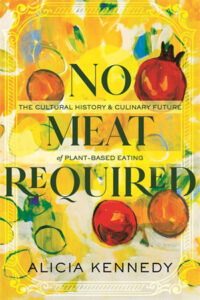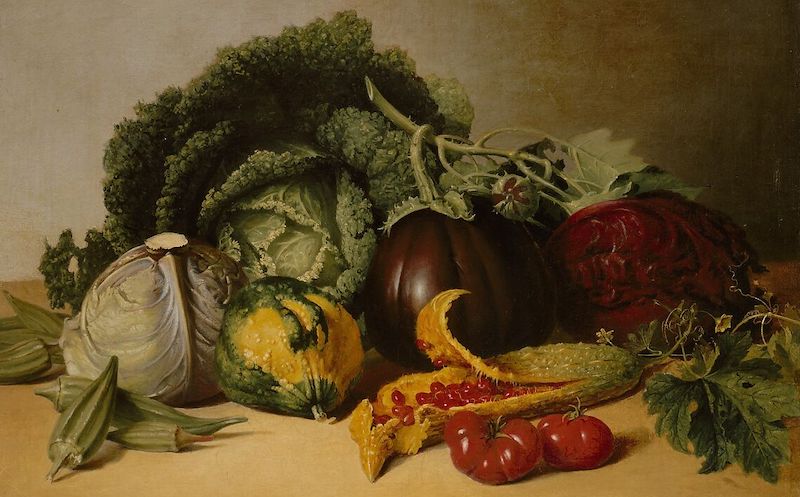Alicia Kennedy on Navigating the Thorny Terrain of Food Writing
"We’re entrusting each other not just with words, but with our bodies, our tastes, and our time at the cutting board."
This first appeared in Lit Hub’s Craft of Writing newsletter—sign up here.
To write about food means always occupying the realm of the ordinary. We can be reporting on deforestation for palm oil production, the destruction of mangroves for shrimp harvests, or the atrocious working and animal welfare conditions in industrial meat-processing, but, for the reader, it will all come back to the grocery store, the kitchen, and the menu they’re faced with at a restaurant. How do we navigate this thorny terrain—which includes labor rights, climate change, loss of biodiversity, corporate greed, colonialism—without overwhelming but instead empowering, entertaining, and encouraging that reader?
For me, as an essayist and cultural critic who’s nonetheless a food writer—meaning, at the end of the day, that I am trying to entice my reader to consider what they eat and occasionally instructing them precisely on how to cook a dish—it requires that I implicate and insert myself into this human dilemma. After all, I have to eat too. How do I do it?
I write in the introduction to my book No Meat Required: The Cultural History and Culinary Future of Plant-Based Eating that in order to trust someone on the subject of food, I need to know about their personal eating history and appetites. This isn’t because I want to measure my own appetite against theirs to ensure we line up, but because it provides significant context: What purpose does food serve in your life? I want to know, so that I can understand why you’re choosing to take it as a focus, whether in a writing career or just one essay. It’s a uniquely parasocial genre, for good reason: We’re entrusting each other not just with words, but with our bodies, our tastes, and our time at the cutting board.
I’m a vegetarian, former vegan, and one-time vegan bakery owner who’s worked at Starbucks, Panera Bread, and an East Village wine bar. I met my husband while he was a bartender and I was a writer on assignment. I grew up on Long Island, spent years in Brooklyn, and now live in San Juan, Puerto Rico. My upbringing consisted of all the Italian, Chinese, Japanese, and Greek food one might imagine a kid just outside New York City would eat, plus Puerto Rican food influenced by my paternal grandmother’s heritage. In my family, we make a kransekake at Christmas not because we’re Norwegian, but because a Bay Ridge-dwelling ancestor was taken by the sight of this cookie tree when walking through Little Norway during the holiday season. I spent over a decade eating vegan food in New York and anywhere else in the world I found myself, chronicling and documenting the emergence of plant-based food as a cuisine.
My eating biography, while without specific allegiances, includes a lot of experience—as eater, as server, as cook—and a commitment to what tastes good. All of this is useful knowledge for my perspective, and it’s why there is a touch of memoir threaded throughout what is ostensibly a cultural history: If I could grow up eating everything, how did I end up with all these ethical concerns and commitments around the food system?
I take the ordinary, the everyday, the ancestral, and the political with me when I write about how we eat today, how vegetarians and vegans in the U.S. have eaten for the past 50 years, and how we could eat in the future if we were to remove meat from the center of our plates. How do I eat and what do I cook when I feel the weight of all this on my shoulders? How have I not allowed it to crush me? Let me tell you.
__________________________________________

No Meat Required: The Cultural History and Culinary Future of Plant-Based Eating by Alicia Kennedy is available now via Beacon Press.




















